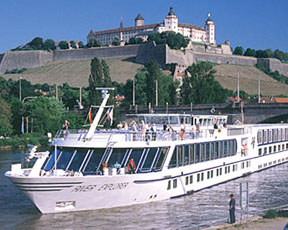Antarctica ship disaster raises safety and environmental concerns
 Washington, Nov 29: The sinking of the M.S. Explorer, a small Canadian cruise ship, in Antarctica, has raised safety and environmental concerns.
Washington, Nov 29: The sinking of the M.S. Explorer, a small Canadian cruise ship, in Antarctica, has raised safety and environmental concerns.
Though the ship sank when it stuck an iceberg on November 23, all 154 passengers and crew aboard it were safely rescued by lifeboats.
According to experts, the current surge in polar tourism and a reported increase in iceberg are the main cause behind such accidents.
"The Antarctic tourism boom of recent years has made for an accident waiting to happen," said sea explorer and writer Jon Bowermaster, who was on the National Geographic Endeavour, the first vessel to arrive on the accident scene.
The cruise season this year from November to February, during the Southern Hemisphere's summer, will see more than 30,000 tourists making the trek on some 50 different ships. If the crew is added to the total figures, the total number of people to visit the region may surpass 50,000.
"Just statistically, it's inevitable that accidents will happen," said Bowermaster. "Many of the ships and crew newly plying the Antarctic are inexperienced with the icy conditions and fast-changing weather that are characteristic of the region," he added.
"Especially in late December and all of January and part of February, there're a lot of inexperienced captains coming and a lot of inexperienced ships," National Geographic News quoted Bowermaster as saying.
"You have to have experience to interpret the ice conditions, to understand what you can go through without problems and what you should be careful about and what you should avoid altogether," said Leif Skog, vice president of marine operations for Lindblad Expeditions in Seattle, Washington.
"Experience may become even more important as the climate continues to warm," said Jo Jacka, chief science editor with the Journal of Glaciology. "While the number of icebergs in the water in any given year naturally fluctuates, icebergs from disintegrated ice shelves along the Antarctic Peninsula are on the rise," he added.
"And those breakouts, I think it's now completely agreed, are a consequence of a warmer climate," said Jacka.
Another noteworthy problem is that unlike the Explorer, many of the ships are enormous and not reinforced to withstand blows from the ice.
"What will happen when there's a bad accident with a larger vessel that's not ice strengthened and the conditions are not as perfect as they were this time?" asked Jim Barnes, executive director of the Antarctic and Southern Ocean Coalition, an association of environmental groups.
Among other problems, is the impact that fuel oil from such a large vessel would have on the marine environment.
"Smaller ships like the Explorer and the National Geographic Endeavour use a light-grade diesel fuel that has less impact on the environment than the heavy oil used by larger ships—though neither would be good if spilled," said Barnes. (ANI)